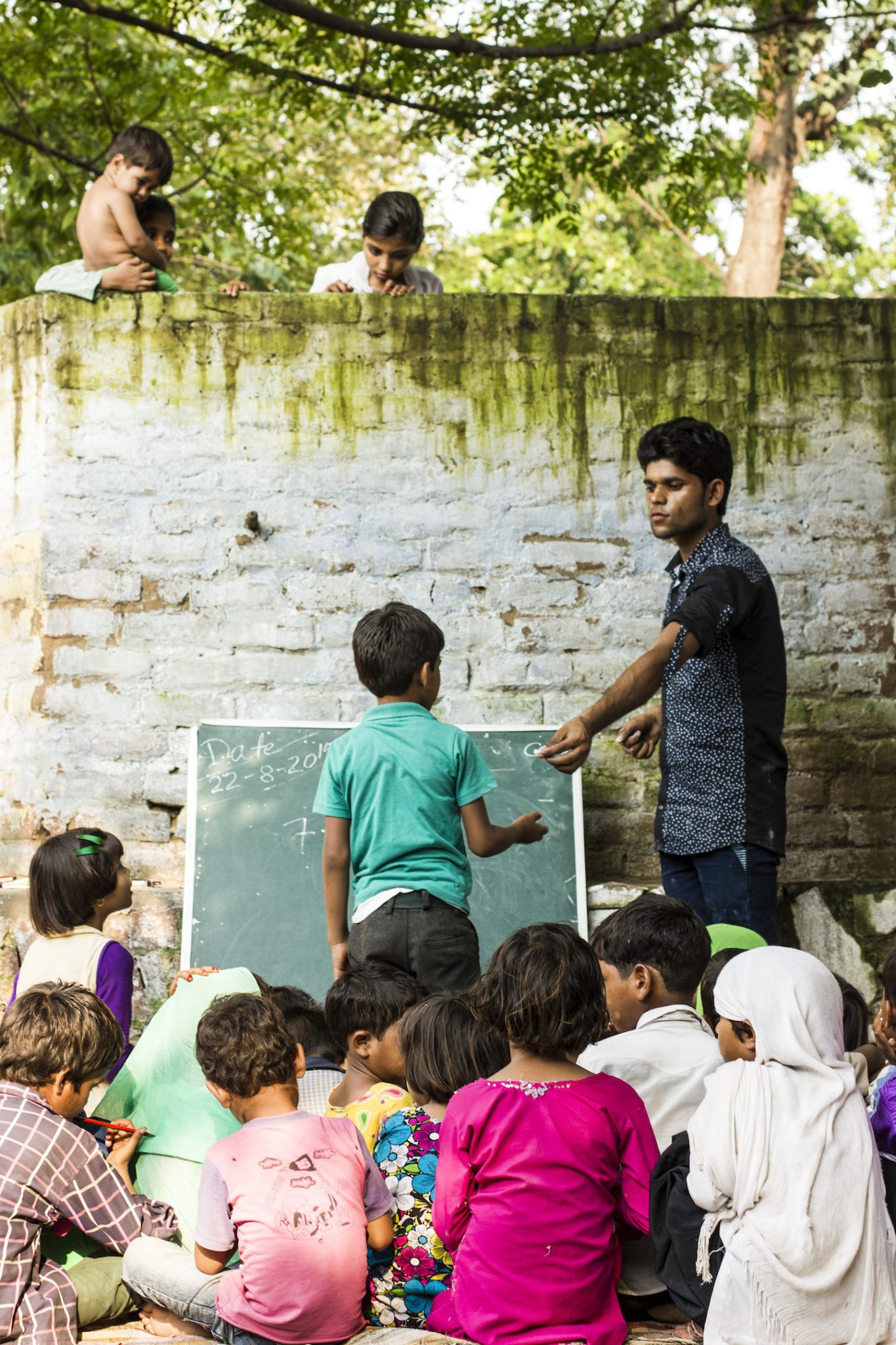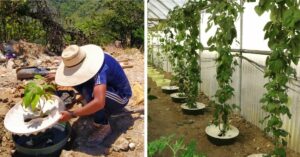How a Couple, Who Moved to a Farm for a Slower Life, Ended up Starting a Village School
From not being able to tell a mango tree and an Ashoka tree apart, Ila Lumba has come a long way in building the Laksh farms and foundation.

A nine-acre property located in Mangar village changed not only the landscape of the area positively but has also managed to bring about a change in the lives of all those associated with it.
It was the vision of the Lumbas — Captain Shakti Lumba and Ila Lumba — that has resulted in this happening. Having visited the Laksh farm multiple times, I can say with certainty that the Lumba’s are the most hospitable and gracious hosts.
I began by asking Ila how the Laksh farm and foundation came into being. “I must tell you about the farm first because that is what we started with. We had almost made up our mind about buying a property in Gurgaon, what stopped us was the matchbox feel it gave us. Finding this piece of land on which Laksh farms is today was by chance. There was just a piece of land, a water body near by and absolutely no vegetation on the land. And yet we knew this was where we wanted to be.”
Over the next few years the Lumbas bought plots of land and put it together to make it what it is today. “Having a farming background and being great at startups was such a bonus for us. Shakti would visit the farm twice in a week and diligently worked at planting all the trees and making it a thriving piece of land.” When I asked her how much of a contribution she had in the early years, she laughs,
“Would you believe it if I said to you initially I couldn’t tell a mango tree and Ashoka tree apart? It has been a huge learning curve for me as well. That could also be the reason why the farm turned out the way it has.”
One of the reasons why Ila also decided to take on this way of living- away from the pollution, the pesticides, and all the other harmful toxins was her mother’s diagnosis of Alzheimer’s. “Seeing my mother ill was a jolt for me. I used to put mummy in the car and we would spend the entire day at the farm and go back in the evening. I did a lot of research on Alzheimer’s and figured out that we must eliminate all the things that can cause damage to our brains.”
So in a sense it was an illness that propelled Ila into living a life away from toxins.

“I started using stainless steel and iron utensils for all our cooking. We completely eliminated the use of urea in the farm. We made these small changes with the hope of ensuring a better future,” she says. She shares with me that there was a time when the gobar (manure) for the farm had to be transported all the way from Vasant Kunj in Delhi. It was because of this that livestock was introduced into the farm. And slowly the farm started becoming self-reliant and sustainable.
Starting a school in the village seemed like the natural thing to do. “I would always see the little kids of the villagers who worked at the farm run around holding tools in their hands. I knew I had to do something to ensure that they get an education. It was this that pushed me to start the school. While the Government school was set up, getting these kids to go there was a task. We started with 4 children and grew to over a 150 in just about a year.” Ila makes it all sound like it was easy, but in reality there were many challenges that she encountered along the way. Parents unwilling to send their kids, the local schools feeling a sense of competition with the school she set up, and even the maulvi’s blaming her for luring the kids with biscuits away from the madrasas. Through it all, Ila kept her sense of calm and said, “I am in no competition with anyone. I am only here to do what I feel is right. The day I feel the kids don’t need me I will walk away.”
‘The school for me was also a place where we taught these kids basic hygiene and discipline. Just standing in a line and raising their hands to ask a question was something big that we achieved with them. I look back with so much contentment and happiness at all we have achieved.”
“I owe a lot of what we are today to friends and well-wishers who came forward to help us monetarily and otherwise. I am so happy that some of the teachers we have in the school now are those who have graduated after studying with us in the school. These are the reasons we keep going.”
“With the advent of the Right to Education, the schools became redundant and that’s when we started tuition centers to provide the children with the extra help that they need. We need to keep changing to provide whatever is most needed at the given time.”
What Ila and Captain Lumba have done at the farm and the Laksh foundation is remarkable.

They have ensured that the women in the Mangar village became self-reliant and confident enough to take on any job they pleased. ‘I have many visitors and friends who often ask me to find them a maid from the village whom they can take back. The women here are now vocationally trained and do not need to go and work in anybody’s house as help. That gives me a sense of great satisfaction,” she says. “I am always learning from them, I tell everyone that they are our equals and in many cases even better than us.”
Click here for more information about the foundation – https://foundation.lakshfarms.com/
Like this story? Or have something to share? Write to us: [email protected], or connect with us on Facebook and Twitter.
NEW: Click here to get positive news on WhatsApp!
This story made me
- 97
- 121
- 89
- 167
Tell Us More
We bring stories straight from the heart of India, to inspire millions and create a wave of impact. Our positive movement is growing bigger everyday, and we would love for you to join it.
Please contribute whatever you can, every little penny helps our team in bringing you more stories that support dreams and spread hope.



















